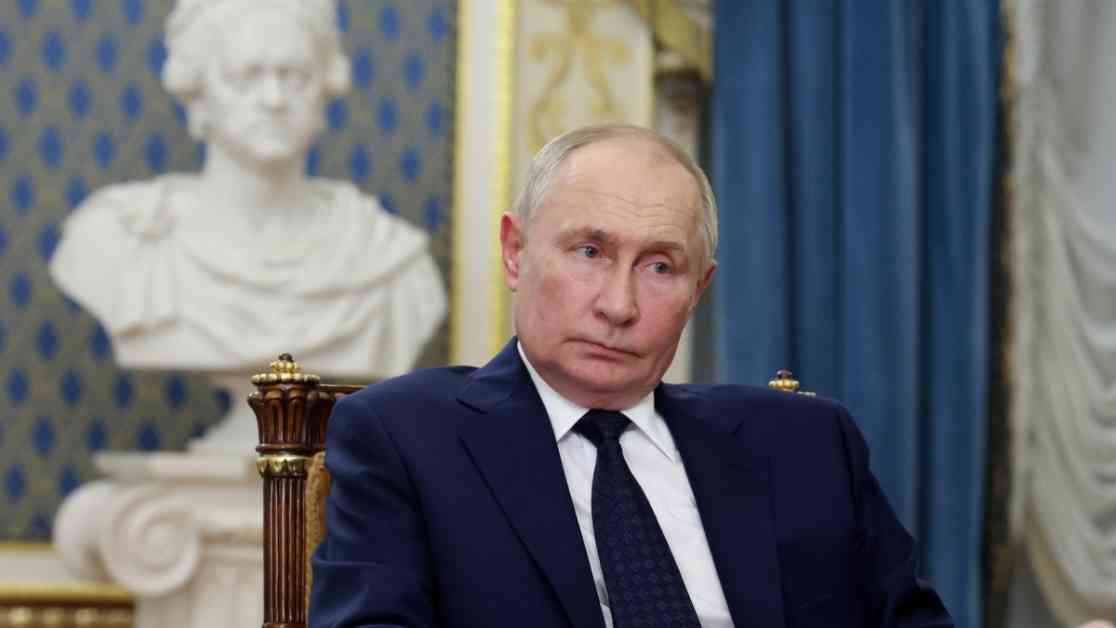Russian President Vladimir Putin’s hold on power may appear strong on the surface, but recent events suggest that this grip is far from stable. Amidst escalating tensions with the West, Putin has resorted to empty nuclear threats as a desperate attempt to assert control and ensure his survival.
### The Spectre of Nuclear War
In a recent meeting with Chairman of the Constitutional Court Valery Zorkin in St. Petersburg, Putin’s true concerns were revealed through the rhetoric of his Foreign Minister, Sergei Lavrov. Lavrov’s invocation of the spectre of nuclear war and warnings about red lines being crossed by the West highlight Putin’s growing unease and paranoia. The Russian government’s threats of nuclear retaliation serve as a facade to mask the underlying fragility of Putin’s regime.
### Intelligence Agencies’ Insights
Amidst these empty threats, the heads of the CIA and MI6 have shed light on the reality behind the Russian red lines. In a joint piece in the Financial Times, the intelligence agencies emphasized that tactical Russian nuclear strikes were once a distinct possibility during Putin’s military operation in Ukraine. This revelation underscores the extent to which Putin’s regime was willing to escalate tensions to maintain its grip on power.
### Putin’s Desperation
As the conflict in Ukraine intensifies and casualties mount, Putin’s desperation becomes more apparent. The Kursk incursion has not only rattled Putin but has also brought the war perilously close to the elite and famous in Moscow. The prospect of conscription for themselves or their children has forced even the Kremlin’s inner circle to confront the harsh realities of the conflict. With over 600,000 casualties and mounting costs, Putin’s narrative of a “special military operation” is becoming increasingly unsustainable.
### The West’s Response
In the face of Russian nuclear sabre-rattling, the London and Washington-based spy agencies have called for a firm stance against Putin’s threats. While the West must not yield to fear of nuclear retaliation, it is crucial to recognize that Putin’s doctrine does not prioritize launching nuclear missiles against Western targets. This assurance should embolden Western leaders to support Ukraine’s military efforts and maintain pressure on Putin’s regime.
### Looking Ahead
As the conflict in Ukraine continues to unfold, the West must remain vigilant and proactive in countering Putin’s aggression. Allowing Ukraine access to advanced weaponry, such as Storm Shadow missiles, and ensuring a steady supply of arms will bolster the country’s defenses against Russian incursions. While some may argue that Putin is the devil the West knows, the reality is that his regime’s destabilization has left Russia vulnerable to further chaos and upheaval.
### Conclusion
Putin’s empty nuclear threats are a reflection of his increasingly precarious position on the world stage. As Western intelligence agencies shed light on the true nature of Russian red lines, it becomes clear that Putin’s regime is teetering on the brink of collapse. By maintaining a firm stance against Russian aggression and supporting Ukraine’s efforts, the West can effectively counter Putin’s desperate attempts to cling to power. Ultimately, Putin’s true concerns lie not in nuclear brinkmanship, but in the growing instability of his own regime.













